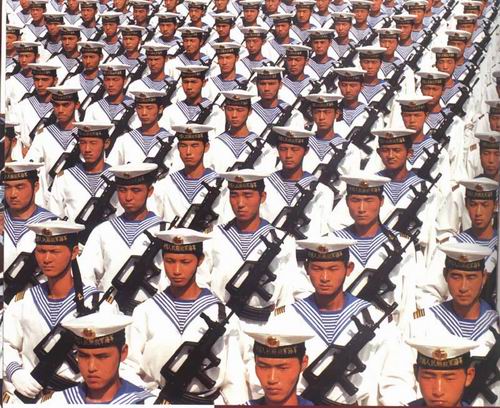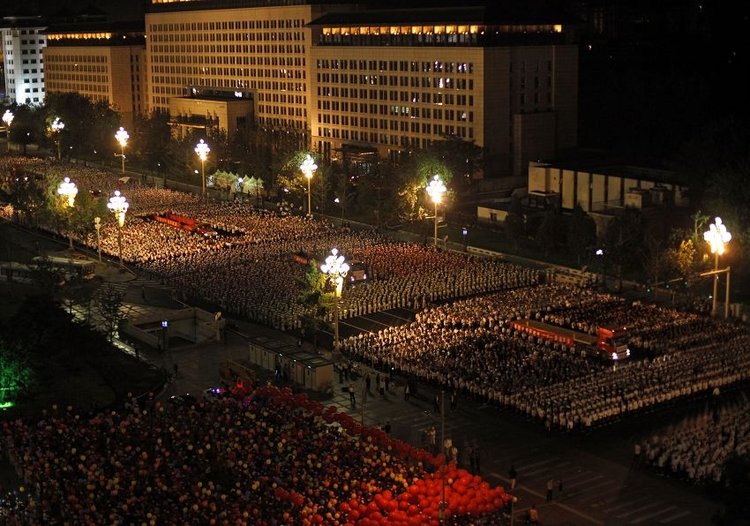Society
- Details
- By David Cao
- Hits: 1500

Update:Gallery: Chinese national day military show 2009, Beijing
I heard the roar of guns tonight, and I awared that this is the rehearsal of the 60th Chinese National Day. Check the video below and figure out what happened in 1999 Chinese National Day, you will get a clue about what will happen 18 days later, the procedure is the same but there will be more new weapons to show.
- Details
- By David Cao
- Hits: 1637

Update:Gallery: Chinese national day military show 2009, Beijing
The next big event in Beijing, China after Olympic Games is the 60th China's National Day Parade which will pass trough the famous Changan Street and bypass the world's biggest square, Tiananmen Square.
Maybe you are wondering what will those Chinese national day parade vehicles looks like?
Well, you can check it here, I just collected few photos of the 60th Chinese national day parade vehicles which you only see 20 days later on 1st oct.
About 60 parade vehicles will show up in the 60th China national day parade 2009.
Read more: 2009 Chinese national day parade vehicles' gallery released
- Details
- By David Cao
- Hits: 767

This is a gallery about Chinese blue collar's daily life. Various of industries involved.
They are seeking for better life in China's metropolis, most of them don't have monthly paied salary, under the limited protection of Labor Law.
- Details
- By David Cao
- Hits: 786

Trials for the first batch of people allegedly responsible for the fire in the hotel next to the new China Central Television (CCTV) tower will begin soon, and sources said more suspects were recently arrested, Dongfang Daily, a Shanghai-based newspaper reported today.
People under investigation include staff and managers at the Beijing Municipal Commission of Housing and Urban-Rural Development, and a project manager in charge of the new site's construction.
According to Beijing fire control authorities, the fire in the hotel was started by an errant firework set off near the new tower as a part of a fireworks display to celebrate the traditional Chinese Lantern Festival that marks the end of the Lunar New Year celebrations. CCTV had hired an outside company to organize the show.
The fire, which occurred on February 9th, 2008, killed one firefighter and injured seven people.
- Details
- By David Cao
- Hits: 858

Hey, Looks like an Exhibition right? Sorry you are wrong, in fact it's the birthday party of a 15-year boy Wang Chuibo who live in Nanning capital of Guangxi province, China.
The Shanghai-Expo-like Birthday Party was hold on the 17th August 2009 and spreaded rapidly during the Chinese netizens.
More Articles …
Page 209 of 255